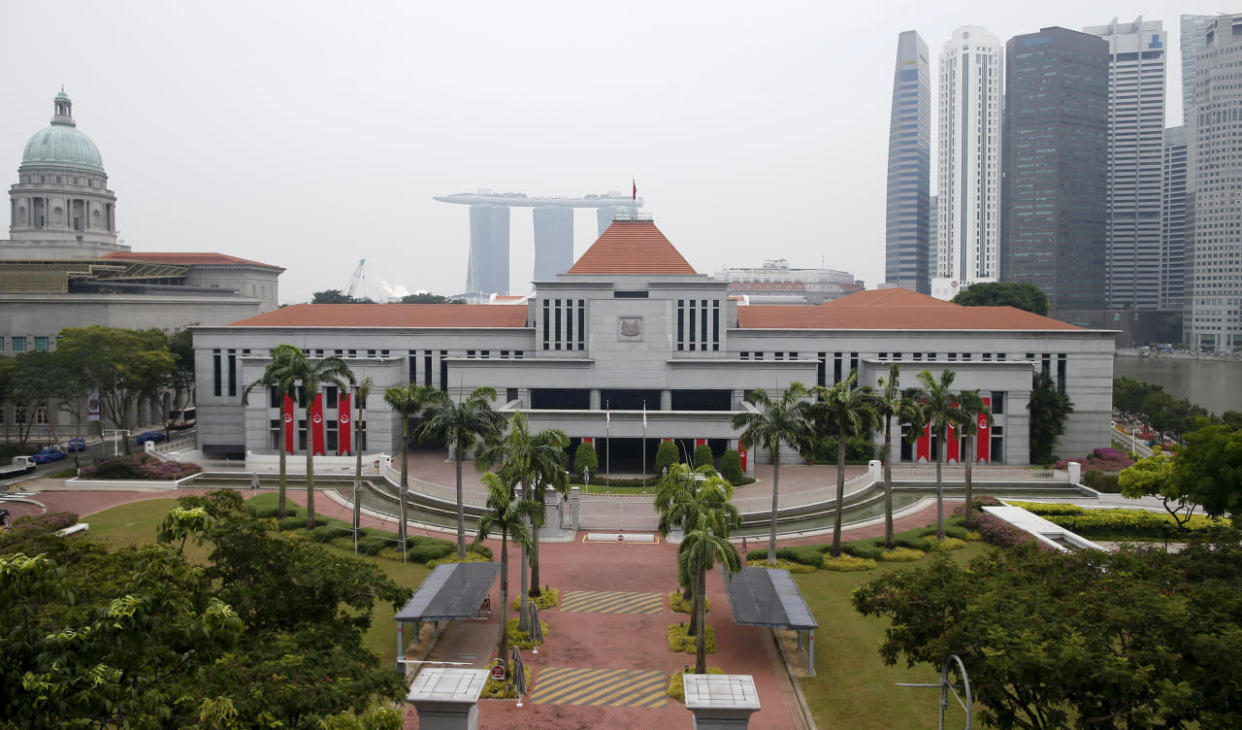COMMENT: Contempt of court Bill will entrench self-censorship

The new Bill will have its second reading on 15 August. (Photo: Reuters)
It’s a most noble name: the Administration of Justice (Protection) Bill. What’s not to like? Who doesn’t want the administration of justice to be protected?
But is that really what’s happening here?
The Bill was introduced by the Lee administration last month and will have its second reading on 15 August. It’s meant to provide clarity on offences related to contempt of court, which is currently based on previous rulings and precedents.
Yet, an examination of the Bill shows that clarity is still lacking. Instead, we appear to be codifying contempt of court offences in ways that could have a chilling effect on free speech in Singapore.
First off, it isn’t really that much clearer what is or isn’t contempt of court. Court proceedings are considered to have commenced once an investigation is launched, and run until the appeal is concluded or the period of limitation for the appeal has expired.
That is a significant amount of time, so what sort of comment or action would be considered contempt of court during such a period?
Grey areas
“It depends” was the best answer lawyers could give at a forum discussing the Bill on Saturday (30 July).
Experienced lawyer Peter Low said that even legal professionals can find it tough to figure out when the line is crossed. Sui Yi Siong, a young lawyer who has done research on the issue of sub judice, pointed out that the phrase “prejudges an issue in a court proceeding” in the Bill is very broad.
Low also highlighted that the legal test used to determine whether one has committed the offence of scandalising the judiciary is merely one of “a risk that public confidence… would be undermined”, which sets a very low bar that could potentially apply to a wide range of speech.
On top of this lack of certainty come other concerns. While the reach of a particular comment is currently taken into consideration when deciding whether it’s in contempt, the Bill specifies “publication” as the dissemination, distribution, exhibition, provision or communication by oral, visual, written, electronic or other means to the public at large or a member of the public. This effectively means that even speech communicated to one other person in Singapore could be found to be in contempt.
These restrictions could prevent Singaporeans from discussing issues of public interest at a time when the matter is most relevant.
Take the Benjamin Lim case, for example: the 14-year-old’s death raised questions over police procedure when it comes to investigations involving minors. The protection (or lack thereof) of minors—and indeed other vulnerable persons—during police investigations is an important public interest issue, related not just to the safety of Singaporeans but also the integrity of and public confidence in law enforcement.
Even the President of the normally reserved Law Society commented on the need for early access to legal counsel, and wondered if things could have been done differently to prevent the tragedy. He came under fire from the Law Minister, who characterised his comments as “deliberate, dishonest attacks”.

Veteran lawyer Peter Low speaking about the proposed Bill at a forum on Saturday. (Photo: Kirsten Han)
Slippery slope
If the Administration of Justice (Protection) Bill were to pass, would the Law Society president’s comments have been deemed in contempt of court? Would Singaporeans still have been able to talk about the issues highlighted by this case, while the police investigations into his death were ongoing, and then a Coroner’s Inquiry launched?
Under this new Bill, the offence of contempt is also deemed arrestable, which means that the police won’t need warrants to search, seize, or arrest.
Like what happened with Teo Soh Lung and Roy Ngerng over the alleged breach of Cooling-Off Day rules, if one is accused of contempt under this new Bill, the police will be able to search your home, seize your property and question you for hours without the need for a warrant. And at that point of time, criticising the behaviour of the police or speaking out about the problematic aspects of this Bill (which would be law by then) could potentially also be in contempt of court.
Then we come to the matter of penalties. The Bill stipulates that the maximum penalty for contempt of court is a fine of $100,000, a jail term of three years, or both. This is far higher than any of the current precedents we have, including the case of British journalist Alan Shadrake, whose case was described as the worst case of contempt in Singapore. He was fined $20,000 and given six weeks’ imprisonment.
Lack of balance
While tensions between the offence of contempt and the principle of free speech will always exist, the broad and wide-ranging language used in the Administration of Justice (Protection) Bill gets the balance wrong. Leaving people confused over what can or can’t be said will have a chilling effect, whatever the intention of the law, further entrenching a culture of self-censorship and passive citizenship that’s detrimental to Singaporean society in the long run.
The Bill will have its second reading on 15 August. It’s possible that it could proceed to its third reading on the same day, and be passed into law, with its broad language and lack of thorough public consultation.
If you’re troubled by the Bill, there’s no time like the present to make that known. Tell people in your social network about the Bill and your concerns. Contact your Member of Parliament. Keep talking and get the word out; if the Bill were to pass in its current form, our right to talk will be even less certain.
Kirsten Han is a Singaporean blogger and journalist. She is also involved in the We Believe in Second Chances campaign for the abolishment of the death penalty. A social media junkie, she tweets at @kixes. The views expressed are her own.


